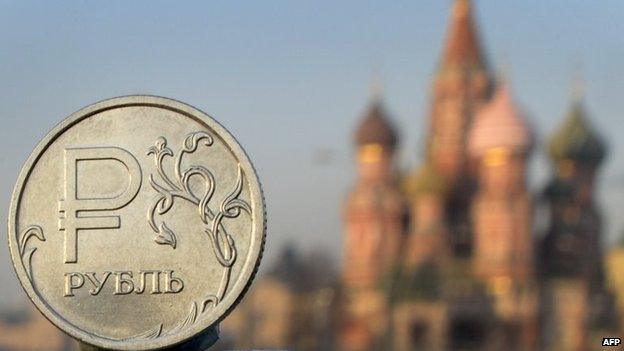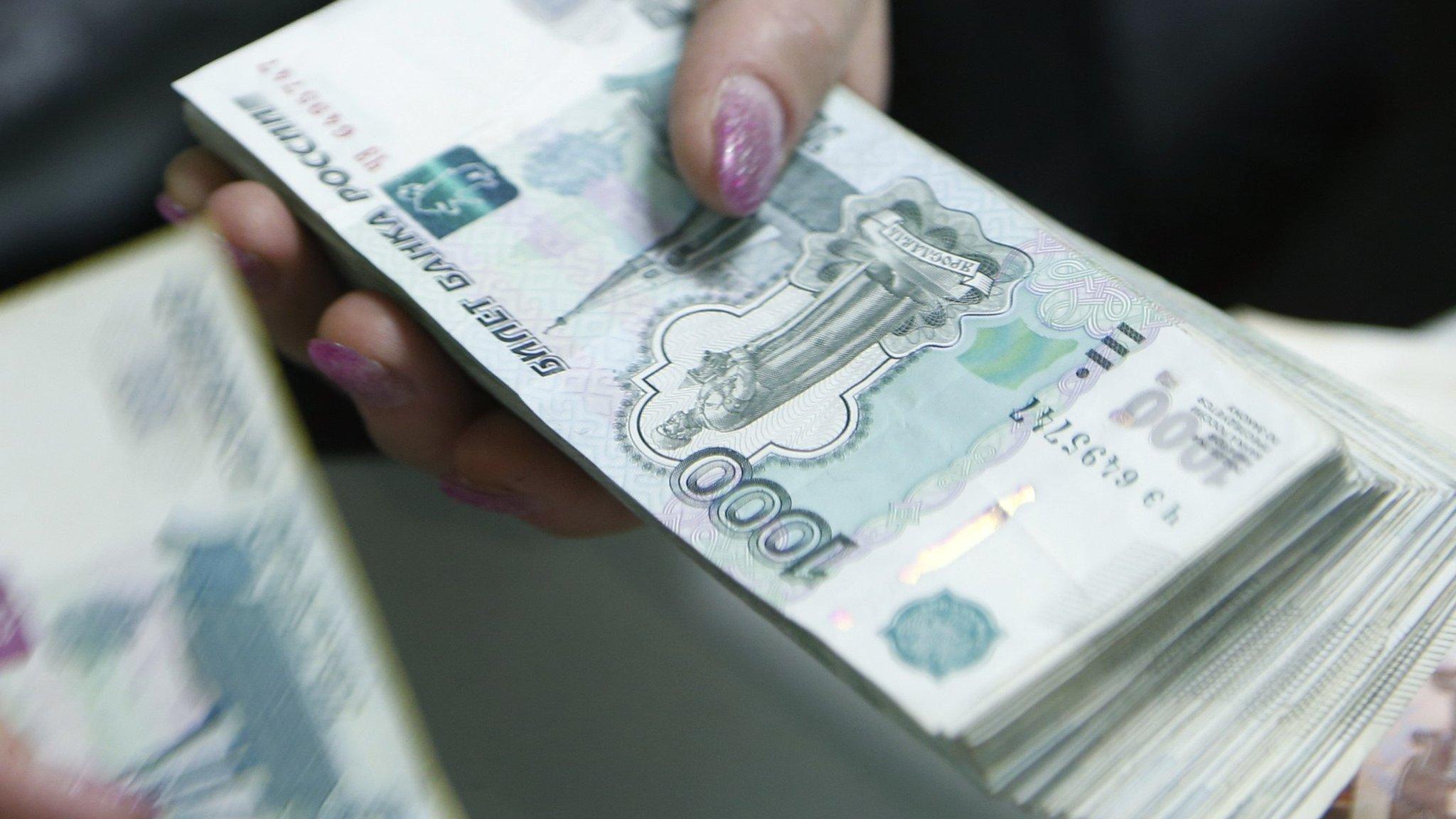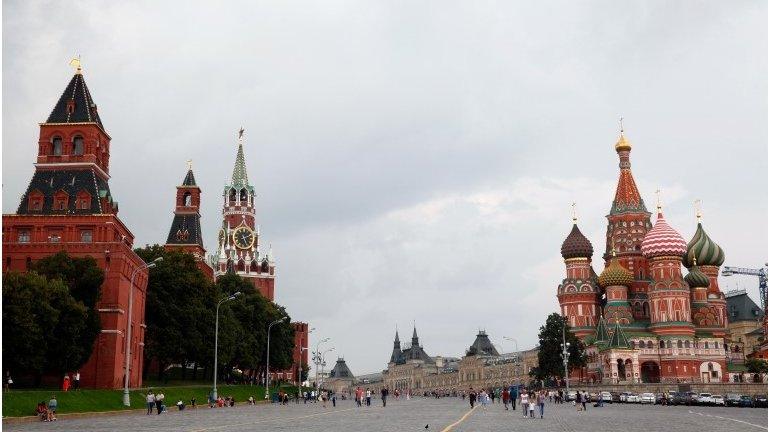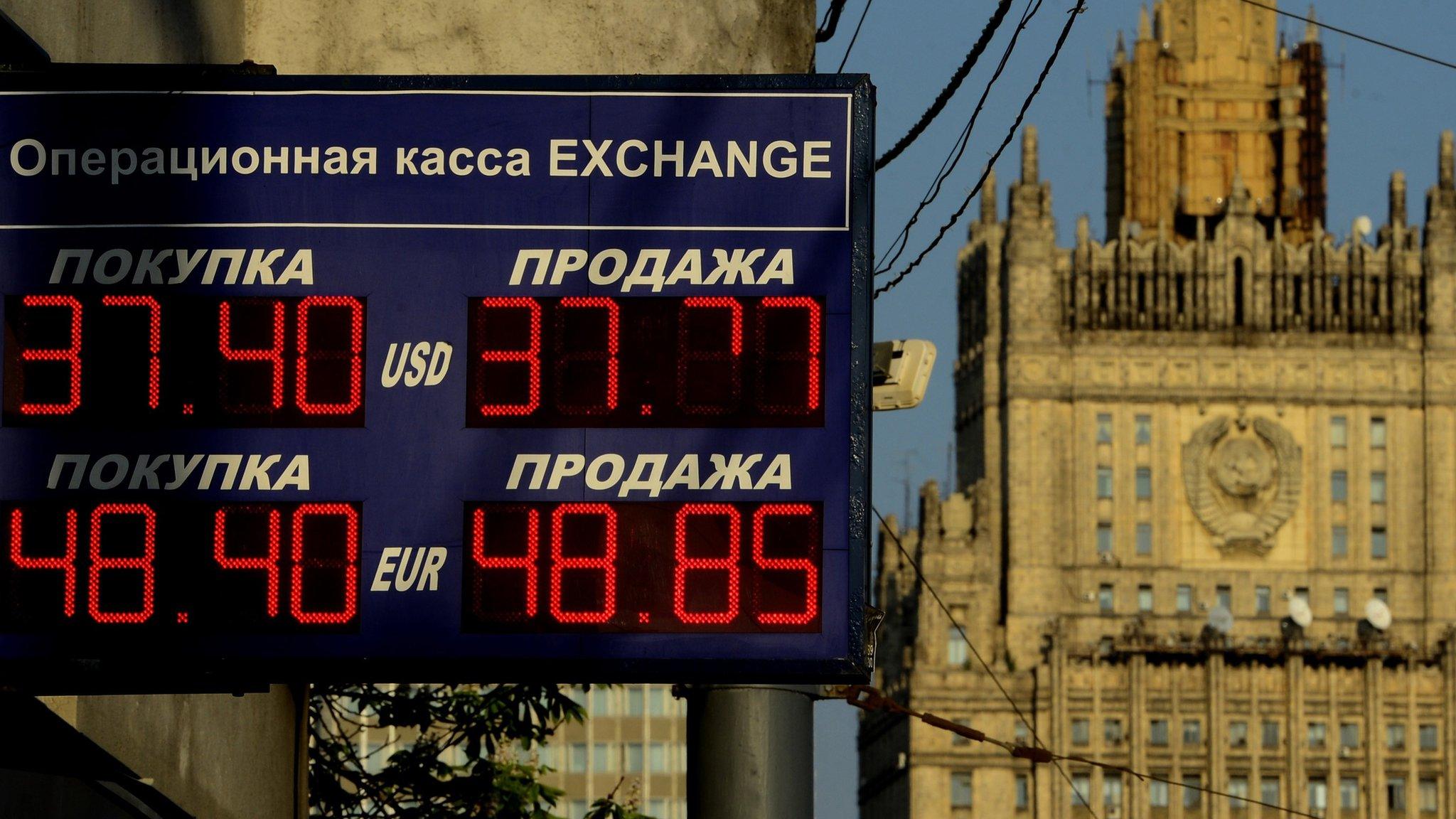Russia admits action to buoy rouble
- Published

Russia's central bank could hike interest rates to support the rouble on Thursday, analysts said
Russia's central bank has admitted it intervened to support the rouble in foreign currency markets last week spending a total of $4.53bn (£2.9bn).
It has spent more than $70bn supporting the rouble since the start of the year.
Its admission came as the World Bank warned the Russian economy would shrink by at least 0.7% in 2015 if oil prices do not recover.
Both the currency and Russian share indexes fell on Tuesday as global oil prices fell to a new five year low.
Rate rise?
Russia has been forced to defend its currency as Western sanctions, in response to its role in eastern Ukraine, and falling oil prices begin to bite.
But analysts suggested it may take a significant hike in interest rates to stop the currency from further falls as well as surging inflation, which stood at 9.1% in November.
"The CBR [Central Bank of Russia] simply is not doing enough to convince the market that it is serious, using a pea-shooter in terms of current piecemeal intervention," said Standard Bank analyst Tim Ash in a note. "It will need to hike rates significantly to defend the rouble, or let the rouble further weaken."
The bank has already raised interest rates by 1.5% in October to 9.5%. It is expected to raise interest rates further later this week.
On Tuesday the rouble fell by 0.9% against the US dollar to 54.25 roubles and lost 1.1% to 67.00 against the euro.
'Speculative demand'
Sberbank foreign exchange and rates chief strategist, Tom Levinson estimated the Russian central bank spent a further $300m to support the rouble in the currency markets again on Monday.
He added that the interventions had prevented the currency from trading much nearer to 60 roubles against the US dollar. But he said the rouble would be "unable to sustain lasting appreciation".
In November the central bank announced it was going ahead with a free float of the rouble by abolishing its unofficial link to the euro and the US dollar. It also announced it was ending automatic interventions to support the currency, instead propping it up only when it was deemed necessary.
The bank had previously supported the rouble when the exchange rate against the euro and dollar exceeded certain limits.
At the time the CBR's chairwoman, Elvira Nabiullina. said the bank would instead intervene in the currency market "at whichever moment and amount needed to decrease the speculative demand."
The bank has said it hopes to achieve a full floating exchange rate in 2015.
Economic woes
Meanwhile, the World Bank forecast Russia's economy would shrink by 0.7% in 2015, but warned that the contraction would be worse if oil prices were to keep sliding.
The World Bank said its forecast is based on a scenario of crude prices averaging at $78 in 2015.
But if oil prices fell to $70 on average, Russia's output would shrink by 1.5%, it said.
Russia's reliance on tax revenues from the oil industry makes it particularly sensitive to price movements.
Last week, the Russian government warned the economy would fall into recession next year.
Russia's economic development ministry estimates the economy will contract by 0.8% next year.
It had previously estimated the economy would grow by 1.2% in 2015.
Stock price fall
Both Russian stock indexes also fell heavily in response to the plunging oil price.
The dollar-based RTS fell 1.9% to 854 points, having earlier set a new five-year low of 847 points. The rouble-based MICEX index was down 0.7% at 1,471 points.
Brent crude fell 0.7% on Tuesday to $65.75, extending Monday's steep decline.
Oil has fallen around 40% since the summer as a result of over supply and weaker global demand, particularly from China, the world's second largest consumer of oil, where industrial production has slowed in recent months.
An OPEC meeting at the end of November, which discussed cutting oil production to halt the slide in oil prices, broke up without agreement.
- Published20 October 2014

- Published2 December 2014

- Published31 October 2014
